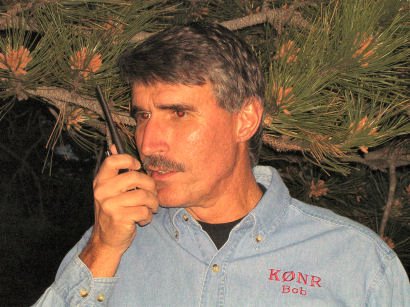FCC Drops Morse Code
 Washington, D.C. – Today, the Federal Communications Commission (FCC) adopted a Report and Order and Order on Reconsideration (Order) that modifies the rules for the Amateur Radio Service by revising the examination requirements for obtaining a General Class or Amateur Extra Class amateur radio operator license and revising the operating privileges for Technician Class licensees. In addition, the Order resolves a petition filed by the American Radio Relay League, Inc. (ARRL) for partial reconsideration of an FCC Order on amateur service rules released on October 10, 2006.
Washington, D.C. – Today, the Federal Communications Commission (FCC) adopted a Report and Order and Order on Reconsideration (Order) that modifies the rules for the Amateur Radio Service by revising the examination requirements for obtaining a General Class or Amateur Extra Class amateur radio operator license and revising the operating privileges for Technician Class licensees. In addition, the Order resolves a petition filed by the American Radio Relay League, Inc. (ARRL) for partial reconsideration of an FCC Order on amateur service rules released on October 10, 2006.The current amateur service operator license structure contains three classes of amateur radio operator licenses: Technician Class, General Class, and Amateur Extra Class. General Class and Amateur Extra Class licensees are permitted to operate in Amateur bands below 30 MHz, while the introductory Technician Class licensees are only permitted to operate in bands above 30 MHz. Prior to today’s action, the FCC, in accordance with international radio regulations, required applicants for General Class and Amateur Extra Class operator licenses to pass a five words-per-minute Morse code examination. Today’s Order eliminates that requirement for General and Amateur Extra licensees. This change reflects revisions to international radio regulations made at the International Telecommunication Union’s 2003 World Radio Conference (WRC-03), which authorized each country to determine whether to require that individuals demonstrate Morse code proficiency in order to qualify for an amateur radio license with transmitting privileges on frequencies below 30 MHz. This change eliminates an unnecessary regulatory burden that may discourage current amateur radio operators from advancing their skills and participating more fully in the benefits of amateur radio.
Today’s Order also revises the operating privileges for Technician Class licensees by eliminating a disparity in the operating privileges for the Technician Class and Technician Plus Class licensees. Technician Class licensees are authorized operating privileges on all amateur frequencies above 30 MHz. The Technician Plus Class license, which is an operator license class that existed prior the FCC’s simplification of the amateur license structure in 1999 and was grandfathered after that time, authorized operating privileges on all amateur frequencies above 30 MHz, as well as frequency segments in four HF bands (below 30 MHz) after the successful completion of a Morse code examination. With today’s elimination of the Morse code exam requirements, the FCC concluded that the disparity between the operating privileges of Technician Class licensees and Technician Plus Class licensees should not be retained.
OK, there you have it...the waiting is over....the FCC has ruled. Is this the end of ham radio? Will the ham bands be overrun with poor operating practices? Will CW operation fade into the night, never to be heard again?
I dunno. Get over it. Turn the radio on. Work somebody (on whatever mode you prefer) and have some ham radio fun.
It is not clear when this change takes effect, so look for more information to follow.
73, Bob K0NR



2 Comments:
Even John Dvorak is blogging about the end of Morse Code testing:
Morse Code to be sent to the dustbin of history by the FCC
http://www.dvorak.org/blog/?p=8724
There has been a lot of talk and openions on this FCC ruling. When the FCC did away with the requirement for a First Class Rediotelephone license to run a Broadcast station I thought it would be the end of Broadcasting but everything is going just fine.
We are going to have to wait and see. To see my thoughts go to http://hamslife.blogspot.com
73 Bill WA6OHP
Post a Comment
Links to this post:
Create a Link
<< Home